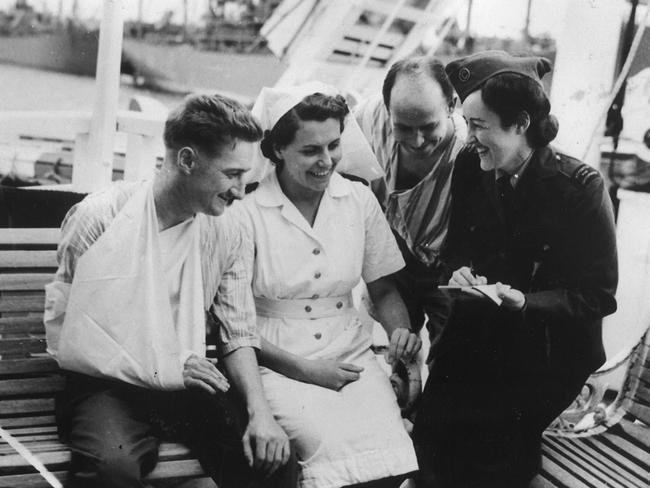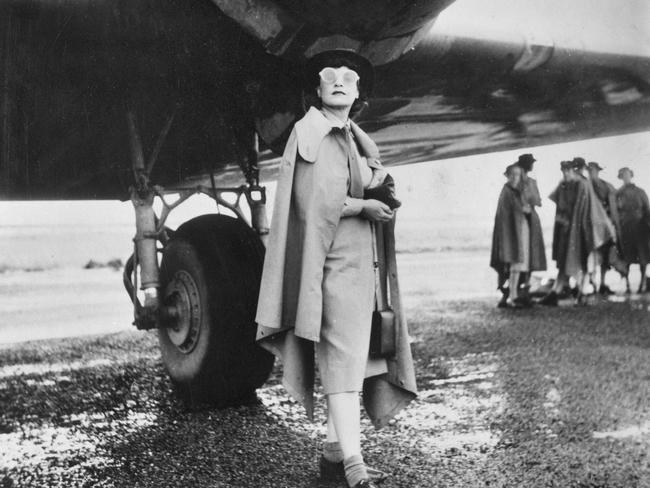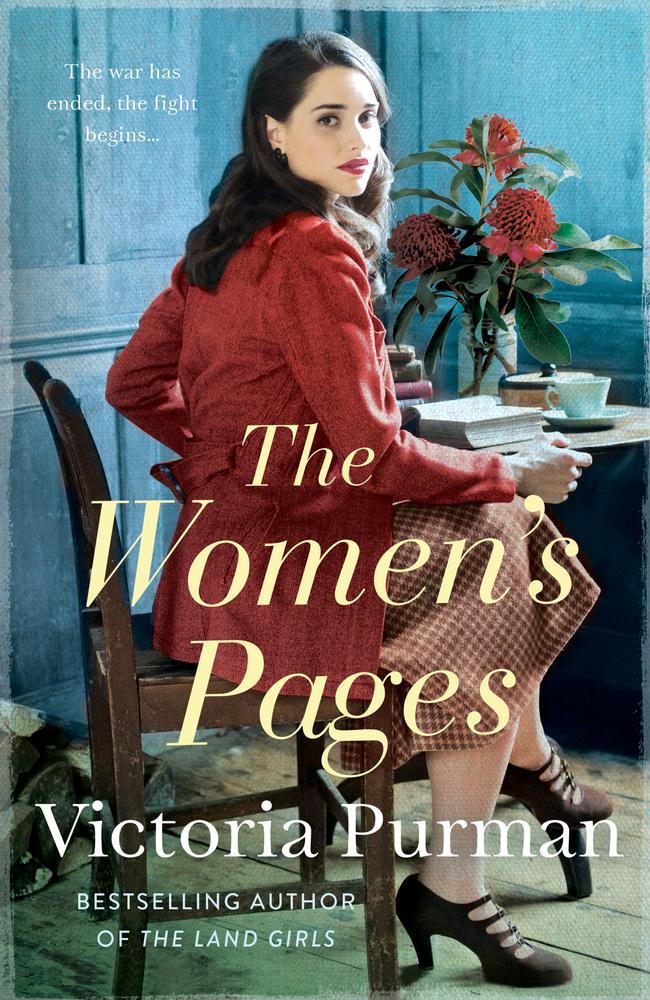The Women’s Pages: Victoria Purman looks at how life changed for women in the Australian media
Seventy-five years ago when World War II ended, a new struggle was beginning for Australian women — and its effects are still being felt today.
Books
Don't miss out on the headlines from Books. Followed categories will be added to My News.
Seventy-five years ago, with World War Two just ended, a new struggle was beginning for Australian women — and as journalist-turned-author Victoria Purman writes, its effects are still felt today.
The women war correspondents of the 1940s broke new ground in Australian journalism, not just for themselves but for women everywhere.
Before the war broke out in 1939, women had for many years worked in the country’s newsrooms but had been largely confined to writing about “women’s issues”: cooking, fashion and advice columns for the lovelorn, for instance.
The newsroom was a man’s world and even when women did work for the papers, they were relegated to a section separate from the men — sometimes even a different floor. If a woman ventured anywhere near the newsroom (in reality, the men’s newsroom) she was met with derision, cries of “There goes the girl reporter” or “sob sister”, and told to “Go back to the women’s pages”.

But the war fundamentally changed that dynamic. In the early years of the conflict, one quarter of all male reporters headed overseas to become war correspondents, including names we are familiar with such as George Johnston, Alan Moorhead, Damien Parer and Chester Wilmot.
That exodus left large gaps in newsrooms. Who was left to cover the stories readers demanded— the stories that still fill our papers and news bulletin — such as crime, politics, the courts, sport and general news? Women had been putting their hands up for years and finally, they were given chances denied to them for so long.
Almost overnight, the number of female journalists in the Australian media doubled.

Despite reservations by some (words still uttered in newsrooms today if you dig deep enough) that women simply aren’t cut out for hard news, they aren’t tough enough to pin a politician on a hard question, that they’re too emotional and only interested in the “women’s angle”, they took to their new roles like ducks to water.
And some wanted to go further and fulfil their own journalistic dreams — just like so many of their male colleagues had done — and become war correspondents.
They were bored with being confined to the women’s pages, relegated to writing about rationing and wartime fashion parades and beauty queens and the social scene.
They too wanted to cover the war that was on Australia’s doorstep and indeed, in its harbours. But the army brass bristled at the idea. How could these “sob sisters” be accommodated when there were no facilities for accommodation and transport?
Although a group of women were issued with war correspondent licences, they never got to speak to a serving soldier and were never given access to a battlefield.
They were largely treated as spruikers for the role of women on the home front, as Land Girls, munitions workers and volunteers, a situation which bristled and which they fought against for the entire war.
Things did change in 1945, after the war was won and Germany defeated. Reporters like Lorraine Stumm and Anne Matheson from The Daily Telegraph reported from Cologne and Nuremberg, and Matheson covered the Nazi war trials. Betty Wilson of the Sydney Morning Herald and Alice Jackson and her daughter, journalist Hazel Jackson of the Australian Women’s Weekly, toured the sites of German atrocities. Iris Dexter reported for Woman magazine from South-East Asia, interviewing newly-released prisoners of war.

My novel The Women’s Pages is a tribute to these groundbreaking women and in my fictional character, Tilly Galloway, I’ve created a reporter who gets her chance in the newsroom when a desperate editor, needing a story covered, searches the newsroom and calls out, “You’ll do.”
Like hundreds of thousands of other women, after the war, the women reporters found themselves out of work. They had been considered good enough to fill in during the war, but the blokes were on their way home and needed their old jobs back. A woman’s work was not in newsrooms or factories or shop floors of office, but to make a comfortable home and have children.
Tilly Galloway proved herself in a tough environment and her battles are largely still the battle of women in the media today.
When I began my broadcast journalism career in the mid-1980s, I was told by a male editor that listeners “simply didn’t like the sound of women’s voices”.
As I listen to a multitude of women’s voices on air these days and read their stories in our newspapers on everything from politics to cricket, I do think of how far we’ve come and how amazed those war correspondents of the 1940s would be.
That’s not to say there’s still some way to go, but women in the media today are just as tenacious, smart and determined as those who’ve gone before them. I know we’re in safe hands.
EVERYBODY’S PAGES
The Women’s Pages by Victoria Purman, published by HQ Fiction, is out on Sept 2. It’s our new Book of the Month, which means it’s yours for a 30 per cent discount at Booktopia with the code PAGES. Come share your reactions and enjoy our all-new special features at The Sunday Bookclub Facebook group.
